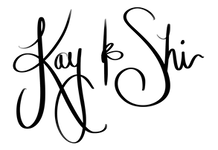Kay:
In this installment, we’re talking all about clarity. It counts. It really super does because many of us aren’t clear on what we want and when we finally get the result that we thought we were going for, it isn’t what we wanted.
Shi:
We’ve talked a lot this week about the impact of neuroscience and our partnership with neuropsychologist Dr. Joseph McClendon III and he says, half the battle, half the battle with any coaching client or challenging organization or sticky situation is actually identifying what it is that the person–or the parties–actually wants. Now, what we want is often disguised in phrasing like “I just don’t want to feel stressed anymore, or I don’t want to get in this sticky financial situation, or I just don’t want to turn out like my mother.” We say things in a way that sounds like we’re expressing what it is that we want but we’re actually just saying what we don’t want.
Kay:
So, one of the cornerstone questions for the coaches in the Neuroencoding Institute is very, very simple, but extremely powerful. It’s the question of, “What do you want?” When you ask yourself this question and find a positive answer it gives you clarity and that can allow the whole energy of the universe to start working toward the things that you want. You know, Shi, you gave a really powerful example of this just recently this week in a conversation that you had with your daughter. She’s going for perfect attendance at school and our family happens to be passing around a little bit of a cold right now which might have threatened that perfect attendance.
Shi:
Right. So, Emerie says to me, “I really want to achieve my perfect attendance this week and you guys all have the sniffles, and I don’t want to get that.” And I said, well, “What is it that you want?” And she said, “I don’t want to get the cold,” and I said, “Emmie, that’s not what you want. You’re telling me what you don’t want.” So, she expressed it again in a negative term and I said, “Well, what is it that you do want? It’s not that you don’t want that because here’s what the Universe hears. They hear you and they hear sickness, and they hear strong emotion. It’s not do or don’t want, it’s just that it’s that noun and that verb and that action and emotion behind it. So, understanding that makes us realize how powerful our words are.” So, she said, “I want to be healthy. I want to have vitality. I want to be energetic and fit.” Those were all perfect examples of how we can reframe into what we do want and bring some clarity to the question, what do you want?
Kay:
Well, this clarity is so important, and framing it in the positive can be something that, like we said, allows that momentum and magnetism of the Universe and of your energy to start moving toward the thing that you desire instead of away from something. Now, when we have ‘toward energy,’ it is a much stronger pull. I want you to just think about that physical expression of ‘toward.’ It’s that forward pull. You likely felt your chest expand and go forward. Now, if you’re being pushed towards something, you’re in that conclave position, your chest is being pushed back. You’re going backward. You’re being pushed towards something or forced toward it, so finding this ‘do want’ versus the ‘don’t want’ gives you lots of ‘pull energy’ in your life instead of ‘push energy,’ which can help you magnetize the things that you want even faster.
Shi:
If you’re wondering if we were both undulating to and fro to the microphone, just now we absolutely were.
Kay:
Yes!
Shi:
Yes, we absolutely were undulating. You know, I think that clarity also counts in a lot of different ways. When you heard us talk last week about tough conversations, and one of the best principles we have is to say it plainly, especially when you’ve got something that you’ve got to say, just say it plainly and I think this also plays into this principle of clarity counts. We were asked recently to be part of the speaking coaches circle for the TEDx event here in Reno, Nevada, and we had just heard a practice talk from an incredible black physician here in town. Afterward one of the organizers was asking her a question, but you could tell he was uncomfortable with it. He was asking about the role of race and trust with her patients and with other doctors. But he said it so confoundedly that he got done with his question, and she looked at him kind of strange, like “What?” I just looked at her and said, “Do other people mistrust you because you’re a black doctor?” She goes, “Oh,” and she got it right there and that’s one of those places where it can be hard to say it plainly, but bringing the clarity forward with authenticity and respect, of course, allowed the point to be communicated more easily.
Kay:
So, as we wrap up here in clarity counts, we’re excited tomorrow to dive even more into what that clarity looks like when you just call it like it is.



